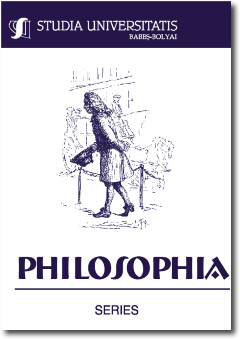PERFORMATIVITY AND COMPLEX ADAPTIVE SYSTEMS: WORKING WITH MULTIPLE NARRATIVES ACROSS KNOWLEDGE TRADITIONS
PERFORMATIVITY AND COMPLEX ADAPTIVE SYSTEMS: WORKING WITH MULTIPLE NARRATIVES ACROSS KNOWLEDGE TRADITIONS
Author(s): David TurnbullSubject(s): Philosophy
Published by: Studia Universitatis Babes-Bolyai
Keywords: Performativity/performative; complex adaptive systems/complexity theory; practices; multiple ontologies; ways of knowing; emergence.
Summary/Abstract: The paper develops a performative account of the ways in which knowledge and space are co-produced as humans move, develop social networks, and extend their cognitive practices. Such an account enables alternative ways of conceiving what counts as knowledge and as modernity to be held in tension, thus allowing the emergent generative effects of the Argentinean philosopher Enrique Dussel’s concept of ‘transmodernity’. Working with differing knowledge traditions requires, as Walter Mignolo recommends, thinking “with, against and beyond the legacy of Western epistemology.” What is at issue is the capacity to move beyond the point of ‘colonial difference’ explored by Mignolo in which Western knowledge gets authorised as universal and the rest get classified as ‘people without history’. Only then can we enable differing knowledge traditions to work together without subordinating them and absorbing their differences in the western panopticon. This is not an easy task since the Western knowledge tradition in the form of science is hegemonic, and all other traditions are rendered as incommensurable, but to commensurate them is by definition to subordinate them and rob them of their cultural specificity. Equally, simply seeing them as different interpretations or different world views is too weak in the struggle for authority. To flourish, to have autonomy in the face of hegemony, indigenous knowledge traditions have to have an effective voice and construct their own identities. What is offered in this paper is a performative framework which is strong enough to destabilise the hegemony of western epistemology and generative enough to allow for real difference and the growth of cultural diversity.
Journal: Studia Universitatis Babes-Bolyai - Philosophia
- Issue Year: 57/2012
- Issue No: 1
- Page Range: 9-32
- Page Count: 24
- Language: English

